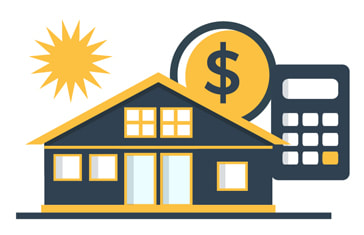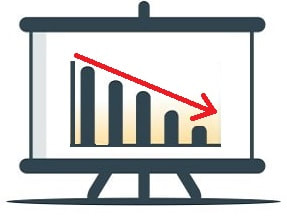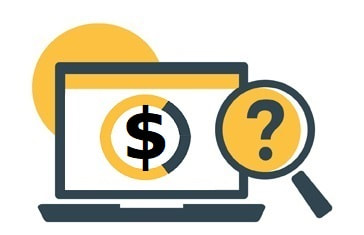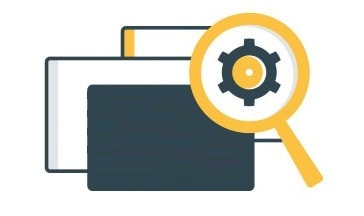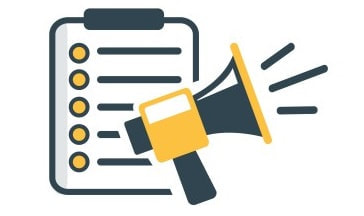Negative Equity in New Zealand - The Definitive Guide
Our guide explains what negative equity is and, more importantly, what it means as a homeowner. We also walk through the top facts you need to know and the most frequently asked questions that New Zealanders have regarding negative equity.
Updated 9 August 2023
Summary
Our guide covers:
Summary
- With the Reserve Bank of New Zealand (RBNZ) raising the Official Cash Rate (OCR) at a blistering pace, many New Zealanders are anxious about how these rate rises will impact mortgage rates and whether they'll be able to service these higher mortgage payments.
- In addition, with no end to rising interest rates, a concept that has not been relevant until recently has started to make New Zealanders nervous.
- Negative equity is also known as having a property that is "underwater"; with property prices expected to continue dropping into the foreseeable future, more New Zealanders will end up with underwater properties.
- This guide explains negative equity, the mechanics behind it, implications of having negative equity on a property and how best to deal with having an underwater property.
Our guide covers:
What is Negative Equity and How Does it Work?
Negative equity happens when a mortgage's size exceeds the value (expected or actual) of a property. Negative equity situations occur most frequently when a buyer has paid significantly above the market value for a property, and property prices have subsequently dropped after buying the property.
For example, if you purchased a house in Christchurch for $600,000 with a 10% deposit, pay lenders mortgage insurance (LMI) on the mortgage and make interest-only mortgage payments, your mortgage might be around $555,000. However, if the cost of your property dropped by 10%, your current property would have an estimated value of $540,000 (90% of $600,000), which is less than the mortgage you borrowed when you first purchased the house. This scenario means you would theoretically be “underwater”, putting you into a negative equity situation.
For example, if you purchased a house in Christchurch for $600,000 with a 10% deposit, pay lenders mortgage insurance (LMI) on the mortgage and make interest-only mortgage payments, your mortgage might be around $555,000. However, if the cost of your property dropped by 10%, your current property would have an estimated value of $540,000 (90% of $600,000), which is less than the mortgage you borrowed when you first purchased the house. This scenario means you would theoretically be “underwater”, putting you into a negative equity situation.
Which New Zealanders are Most at Risk of Negative Equity?
Not all homeowners will be at risk of entering a negative equity situation. Below are some of the buyers most at risk of negative equity:
Property buyers who purchased recently (in the last two to three years)
New Zealanders who bought a property close to the peak of the market in late 2021 are likely the first to be in a negative equity situation if their home values have dropped 20%, especially if they bought in areas that had the highest prices relative to income or rents (such as Auckland or Wellington).
First-home buyers with low liquidity or lacking additional assets/collateral to use
First-home buyers (FHB) usually have less capital and income than older investors so the home will be a FHB's most significant asset. Generally, FHBs won't have many other high-value assets if something unexpected happens, and they need to use other assets (that weren't their first property) as collateral against the bank loan.
Buyers in high price-to-income ratio / high price-to-rent ratio areas
Buyers that purchased their properties in places with high property valuations relative to metrics like household income or rent (such as Auckland, Tauranga and Wellington) are generally at higher risk compared to areas with more reasonable household income or rent multiples.
Property buyers with large mortgages/high LVRs (Loan to Value Ratios)
Generally, the larger your mortgage relative to your deposit, the more likely you'll get into a negative equity situation if house prices fall. Because homeowners with the highest LVRs are more highly levered than those on lower LVRs, these homeowners will be more exposed and feel the effects of property price drops much more than other homeowners.
What are the Implications of Negative Equity? Will My Bank Force Me to Sell My Home?
The natural question for those in negative equity situations is to ask what the New Zealand banks will do to homeowners in negative equity. Fortunately, the answer to the question in the short term is "not much".
New Zealand banks are not incentivised to repossess or foreclose on homes.
- Generally, banks are unlikely to foreclose on properties even if homes are in negative equity. The most important thing the banks will articulate to mortgage holders is to continue to meet their payments and ensure their earnings are stable. Banks only foreclose on a home when the mortgage-holder stops paying their mortgage (when they "walk away from the property"). Even then, banks will usually try to provide as many alternative financing arrangements as possible to prevent forced selling.
- While negative equity is front of mind for many New Zealanders right now, from the bank's perspective, a very small percentage of the bank's customers will be "underwater". As a result, the banks will be less concerned about homeowners' current negative equity levels relative to their entire customer base.
- Banks will stress test a customer's ability to meet increased mortgage payments (usually up to 7% or 8%) before they loan money to customers. With an increase in regulation in the last decade regarding financial stability, there are likely to be few borrowers currently paying mortgage rates higher than the rates the New Zealand banks have stress tested against when they issued the loan. Therefore, the banks are likely prepared for any increase in mortgage rates and subsequent price declines (which usually lead to increases in negative equity).
- Banks usually take a longer-term view of the property market. For example, suppose they see the strong labour market and forecast that residential housing prices will stabilise and continue to rise. In that case, they won't be incentivised to act rashly and foreclose on housing.
Why banks won’t try to repossess your house as soon as you go into negative equity
Banks in New Zealand have no need or desire to do what offshore banks were forced to do during the Global Financial Crisis of 2008. During the Global Financial Crisis, unemployment began to skyrocket, and most housing debt could not be serviced, leading to forced selling (from people "walking away from their properties") and even larger drops in the housing market. This systemic level of risk forced banks to conduct mortgagee sales on properties with negative equity.
However, as of 2023, New Zealand has a few unique characteristics that mean banks are less stressed about the current housing market:
However, as of 2023, New Zealand has a few unique characteristics that mean banks are less stressed about the current housing market:
- New Zealand banks have significantly higher capital reserves compared to what offshore banks had in the Global Financial Crisis of 2008
- The unemployment rate is extremely low, sitting at around 3% to 4%, meaning many people (especially those with mortgages) have steady jobs and are likely to have high enough income levels to continue to repay their mortgages.
- While the media likes to portray doom and gloom for more views and clicks on their articles, most New Zealanders aren't as highly mortgaged to the hilt as the media makes them out to be. LVR restrictions have prevented most people from going beyond 5X leverage (requiring 20% deposits).
- In addition, most home buyers purchased their homes many years ago and have been paying down their mortgages while house price valuations have been increasing, leading to lower leverage levels across the board.
The key criteria for when the banks will start to get nervous about homeowners in negative equity:
Banks will start to get worried about negative equity if any of the above reasons why banks are comfortable with negative equity starts to shift. These characteristics can include the following:
- Increasing rates of unemployment
- Ballooning debt balances
- Stark increases in interest rates, putting pressure on mortgage holders
- Decreases in wage growth
- Accelerated selling of homes, leading to larger price drops and amplified losses on a bank's balance sheet
- Changes to a bank’s risk profile that forces them to reduce the amount of debt on their balance sheet (enforce mortgagee sales which can force other banks to follow suit)
Must-Know Facts about Negative Equity
The more house prices drop, the more New Zealanders will enter negative equity situations.
With the downward pressure on house costs likely to continue for the next few years, the number of recent buyers across New Zealand who will be in a negative equity situation will likely increase. However, this isn't a cause for alarm (yet). As discussed above, as long as you continue to meet your mortgage payments, banks are unlikely to go through the mortgagee-forced sale process.
New Zealand property owners can be in a negative equity situation without even knowing it.
While negative equity is on many New Zealanders' minds now, a bank may not even inform mortgage holders that they are "underwater" as property valuations are done infrequently and are usually backwards-looking.
You (and the banks) won't know on any particular day what your property is worth unless you get a comprehensive valuation. Whether you know if your home is underwater will depend on how often a valuation is done and whether a bank uses the Capital Value (CV), Quotable Value (QV) or market value (through third-party data sources) to identify the real value of your property on the open market. This lack of bank communication and inconsistent valuation methodology can mean that New Zealanders may be in negative equity situations for long periods without knowing it.
Additionally, if you or your bank discover that your house is valued less than the mortgage debt owed, it may not mean that any short-term actions need to be taken. As long as you continue making your mortgage payments, banks will typically not pursue any actions.
You (and the banks) won't know on any particular day what your property is worth unless you get a comprehensive valuation. Whether you know if your home is underwater will depend on how often a valuation is done and whether a bank uses the Capital Value (CV), Quotable Value (QV) or market value (through third-party data sources) to identify the real value of your property on the open market. This lack of bank communication and inconsistent valuation methodology can mean that New Zealanders may be in negative equity situations for long periods without knowing it.
Additionally, if you or your bank discover that your house is valued less than the mortgage debt owed, it may not mean that any short-term actions need to be taken. As long as you continue making your mortgage payments, banks will typically not pursue any actions.
The psychological impact of being in a negative equity situation can be tough.
While it helps to know that a bank will not immediately force the sale of your house to pay off the mortgage debt you owe, that doesn't mean that New Zealanders aren't stress-free. A few of the below are common reasons why it can still be stressful to be in a negative equity situation:
Know This: Being in a negative equity situation isn't great for any New Zealand homeowners’ mindsets. Still, it can help to know that as you continue to make your mortgage payments, your risk of entering into a negative equity situation decreases as you reduce the size of your mortgage. If you're already in a negative equity situation, continuing to make your mortgage payments will also reduce the debt you owe, increasing your odds of getting out of a negative equity situation. Most of the time, if you're making your payments and have a steady income, the bank will not foreclose on your home, and you'll be able to ride out the uncertainty.
- Knowing that the house you live in is worth less than the debt you owe
- Knowing you’re paying down your mortgage for a house that isn’t worth as much as the debt you’re paying down
- Knowing that you’ll likely need to continue making mortgage payments for upwards of three decades
- Knowing that if you lost your job, the bank could foreclose on you at any moment
Know This: Being in a negative equity situation isn't great for any New Zealand homeowners’ mindsets. Still, it can help to know that as you continue to make your mortgage payments, your risk of entering into a negative equity situation decreases as you reduce the size of your mortgage. If you're already in a negative equity situation, continuing to make your mortgage payments will also reduce the debt you owe, increasing your odds of getting out of a negative equity situation. Most of the time, if you're making your payments and have a steady income, the bank will not foreclose on your home, and you'll be able to ride out the uncertainty.
Frequently Asked Questions
What percentage of homeowners are in negative equity right now?
ANZ is the largest home loan lender in New Zealand, followed closely by ASB, Westpac and BNZ. However, it is difficult to establish the likely percentage of homeowners entering a negative equity situation as most banks don't include the relevant information in their annual reports.
Some organisations like Corelogic and the Real Estate Institute of New Zealand conduct analysis using valuation models to predict the likely amount of property owners that are currently underwater. Generally, these models are built off data that isn't publicly available or free.
However, given the decline in property prices has only materialised in the last year, the number of households currently in a negative equity situation is likely small relative to all homeowners.
Some organisations like Corelogic and the Real Estate Institute of New Zealand conduct analysis using valuation models to predict the likely amount of property owners that are currently underwater. Generally, these models are built off data that isn't publicly available or free.
However, given the decline in property prices has only materialised in the last year, the number of households currently in a negative equity situation is likely small relative to all homeowners.
Should I sell my property? Is it risky to hold onto the property in a falling market?
Generally, over long periods the housing market recovers any lost value. However, this doesn't mean that this value recovery will happen anytime soon. On a relative basis, the New Zealand housing market is one of the most highly valued property markets globally on a price-to-income or price-to-rent basis. This situation can mean that it may be decades before the New Zealand property markets recover to their peak 2021 levels.
There’s no right answer as to whether you should hold or sell your properties. Whether you choose to sell will be heavily influenced by several factors, including:
There’s no right answer as to whether you should hold or sell your properties. Whether you choose to sell will be heavily influenced by several factors, including:
- Whether you’re able to service your existing mortgage debt repayments
- The opportunity cost of other investments at the moment (equities, bonds, term deposits)
- Your risk appetite
- Your short-term, medium-term and long-term goals
- Your expectation of what will happen to property prices in the short/medium/long term
- The stability of your job
- Your unique financial situation
What are some situations where negative equity becomes an issue for New Zealanders?
Negative equity is only a problem for homeowners if they need to sell urgently. Here are a few instances where you may be required to sell your property:
- If you get made redundant and can't make the mortgage payments (risking default on your mortgage)
- If you get divorced, leading to a forced sale to split the assets
- If you need liquidity/cash to pay off other short-term debts as enforced by a court or other entity
- If you die (which will lead to your will getting executed, meaning your next of kin may be forced to sell the property)
What are the biggest risks for homeowners in negative equity situations?
One potential risk to remember is your ability to meet increased mortgage repayment amounts through higher interest rates. Over the last 12 - 18 months, interest rates have increased from a record low of <2% for one-year fixed rates to upwards of 7%+ on five-year fixed rates. This drastic increase in mortgage rates likely means homeowners must allocate substantially higher amounts of post-tax income towards mortgage repayments. However, homeowners should be able to offset those increased mortgage repayment costs by reducing their expenses (particularly their non-essential spending such as travel, upgrading cars or discretionary activities) or increasing income through side hustles.
For a comprehensive guide on side hustles, check out our guide guide here.
For a comprehensive guide on side hustles, check out our guide guide here.
What can I do if I might default on my mortgage?
If you’re worried that you won’t be able to meet your mortgage payments or are at risk of losing your job, there are a few things you should do first:
- Talk to your bank. They can work out an alternate financing or refinancing arrangement to prevent you from defaulting on your mortgage (and forcing them to repossess your home and sell it on the open market to recuperate the debt owed to them).
- Get help from a mortgage adviser.
- Pick up a side hustle. The more income streams you can generate, the more insulated you will be if you end up getting made redundant.
- Identify your "runway". In other words, if the worst scenario played out, how long could you continue to meet your mortgage payments using existing savings and investments or by leveraging support from friends or family before you defaulted on your mortgage?
Why don't banks force mortgage holders/homeowners to sell their properties to recuperate the debt they're owed?
Banks would rather people keep paying their mortgages to profit off the debt's interest. Because banks keep mortgage debt on their balance sheet as assets, there's no incentive for New Zealand banks to foreclose on mortgage holders. If banks were to force New Zealanders in negative equity situations to sell their properties, they would not only miss out on the interest from continued mortgage payments but forced selling would also increase the supply of houses on the market, pushing house prices down further, leading to larger losses on a bank's balance sheet.
Additionally, the bank would be trying to sell the property on the open market when it might not be able to get the best price for the property in the mortgagee sale scenario. Banks typically take a longer-term time horizon and recognise that property prices can fluctuate heavily over the life of a loan.
Additionally, the bank would be trying to sell the property on the open market when it might not be able to get the best price for the property in the mortgagee sale scenario. Banks typically take a longer-term time horizon and recognise that property prices can fluctuate heavily over the life of a loan.
Can I still borrow money from banks if I'm in a negative equity situation?
Owing more on a mortgage than you own in assets can make additional borrowing harder. If the bank you have your mortgage with realises that you're in a negative equity scenario, it's not likely they'll want to lend you any more credit, so you won't be able to borrow additional funds for other areas of your life (such as overdraft, additional credit cards, business loans or renovations).
In some circumstances, the bank may also reduce or limit your access to revolving credit facilities (such as credit cards or overdraft accounts) given an individual's high levels of debt relative to assets. But, generally, a bank won't want their customers with existing underwater mortgages (or close to being underwater) incurring more debt and adding additional risk to their books.
In some circumstances, the bank may also reduce or limit your access to revolving credit facilities (such as credit cards or overdraft accounts) given an individual's high levels of debt relative to assets. But, generally, a bank won't want their customers with existing underwater mortgages (or close to being underwater) incurring more debt and adding additional risk to their books.
What happens if I have to sell my property when I’m in a negative equity situation?
While the optimal path for those in negative equity situations is to continue meeting their mortgage repayments, sometimes unexpected things happen out of your control and force you to sell your property. For example, you might get divorced, contract a life-threatening illness or get laid off.
If you're forced to sell your property when in a negative equity situation, the sale proceeds of the house will likely be less than the balance on the mortgage, meaning you'll be left with residual debt. The bank will usually convert this into a personal loan and it will be between you and the bank to negotiate the payback period and interest rate for this loan. Given the loan will likely be unsecured (e.g. there isn't a house the bank can use as collateral if you default on your payments), the interest rate they charge you for the personal loan will be higher than the mortgage rate.
However, it's important to note that New Zealand property markets operate slightly differently from offshore property markets like the United States, where it's common for homeowners to declare bankruptcy, hand over the keys to a property and walk away from any debt.
While bankruptcy is one course of action In New Zealand, banks will have every incentive to keep you paying off your mortgage debt. Banks (and the government) won't just let you get away unscathed. Banks generally have recourse processes and will pursue New Zealanders through legal means to repossess any unpaid debts.
If you're forced to sell your property when in a negative equity situation, the sale proceeds of the house will likely be less than the balance on the mortgage, meaning you'll be left with residual debt. The bank will usually convert this into a personal loan and it will be between you and the bank to negotiate the payback period and interest rate for this loan. Given the loan will likely be unsecured (e.g. there isn't a house the bank can use as collateral if you default on your payments), the interest rate they charge you for the personal loan will be higher than the mortgage rate.
However, it's important to note that New Zealand property markets operate slightly differently from offshore property markets like the United States, where it's common for homeowners to declare bankruptcy, hand over the keys to a property and walk away from any debt.
While bankruptcy is one course of action In New Zealand, banks will have every incentive to keep you paying off your mortgage debt. Banks (and the government) won't just let you get away unscathed. Banks generally have recourse processes and will pursue New Zealanders through legal means to repossess any unpaid debts.
I'm stuck in a negative equity situation paying off a debt that isn't worth the house's value. Furthermore, the property market will continue to drop, reducing my equity even further. Should I just cut my losses and walk away?
If you're in a negative equity situation, it can be incredibly challenging from a psychological perspective to continue paying your mortgage, knowing the value of your home is falling. While "cutting your losses" and selling the property (likely at a loss) can be mentally alleviating, it's not a decision you should make lightly. You'll likely need to make up the shortfall on the debt you owe to the bank, move out of the home if you're currently living in it and uproot yourself and your family (if applicable).
Generally, property markets will continue to appreciate over long periods. If you're in a steady income position and can continue paying the mortgage each month, this stability ensures that you don't put yourself in a worse financial position than you need to be in.
Making decisions around buying and selling property is likely the most significant financial decision you'll have to make in your lifetime. Therefore, it's recommended to talk to your bank or a mortgage broker before making any decisions.
Generally, property markets will continue to appreciate over long periods. If you're in a steady income position and can continue paying the mortgage each month, this stability ensures that you don't put yourself in a worse financial position than you need to be in.
Making decisions around buying and selling property is likely the most significant financial decision you'll have to make in your lifetime. Therefore, it's recommended to talk to your bank or a mortgage broker before making any decisions.
What are the main reasons that lead to negative equity situations?
There are many reasons why New Zealanders may end up in negative equity situations. However, the most common reasons are:
1. Buying at the top of the property cycle
2. Overpaying for the property
3. High Loan-To-Value Ratio (LVR)
1. Buying at the top of the property cycle
- If you purchased your property at the "top" of a market, generally defined as paying a high price-to-rent multiple relative to history, this can be one of the main reasons for getting into a negative equity situation. Market cycles have periods of growth and contraction.
- Buying at the wrong time (at the top of the market) can mean that the inevitable pullback in prices results in a significant reduction in the value of the property in the short term.
2. Overpaying for the property
- Separately from the wider housing market, if you pay a significant premium for the specific property relative to other similar-sized houses in the area, you'll increase your risk of entering into a negative equity situation.
- Many property purchases (especially first home buyers) can be fueled by emotion rather than logic and rationality, especially in an auction setting where the last bidder is usually paying a significant premium compared to others in the room.
- This behaviour can result in New Zealanders overpaying for properties. For example, suppose you pay too much for a property, and the property market falls. In that case, the property price may fall faster than the broader market, given the price has started at a significantly higher number than it likely should have.
3. High Loan-To-Value Ratio (LVR)
- Generally, the more levered you are, the higher your risk of entering a negative equity situation. In a sense, the deposit you put up acts as a "buffer" against entering a negative equity situation. The more equity you have (through a larger deposit), the lower your LVR, and the more insulated you are to decline in the general property market.
- However, purchasing properties with low LVR or all-cash isn't feasible for many New Zealanders. Generally, it's required to have at least 20% down (having an 80% LVR), but in some historical instances, or the context of first home buyers, you may have much smaller deposits (10% or 5% in some cases) meaning some properties will have 90% or 95% LVR.
- The higher LVR you have, the more at risk you are of entering a negative equity situation if house prices fall.
- For example, a borrower who purchases a property with a 95% LVR will have a much smaller buffer if property prices drop than someone with an 80% LVR.
Is there a kind of property more likely to be "underwater" (in a negative equity scenario)?
Generally, the higher a property is relative to the rest of the market, the more likely that property is to experience sharper price declines and put New Zealanders in negative equity situations. Some examples of this include:
- New properties: Generally, these properties are priced at a premium and include developer fees and real estate agent commissions.
- Developments/Units: Some developments or units located in niche areas or have specific property characteristics (such as small apartments) tend to entice investors looking for yield rather than owners looking to move in. As a result, these types of properties that have smaller groups of buyers can experience larger drops than generic houses that attract much more interest.
- Properties purchased "off the plan": Those properties priced at the market's peak but are now at risk of either not being completed (due to construction financing costs rising or vacancies) run the risk of experiencing the largest price declines.
- Townhouses/Terraced Houses: Less differentiated properties or additional restrictions (such as townhouses and terraced houses that have to join walls or are on the same plot of land) can be less desirable in a downturn, leading to larger price declines and increasing the risk of New Zealanders going into negative equity situations.
How can I decrease the financial impacts of negative equity?
If you can repay the mortgage, your property will likely increase in value over time. However, consider selling your property to cap further losses if you're under financial pressure. That said, property markets tend to rise over long periods, so if you're able to manage your repayment schedule and can keep the property until you can sell in a better market environment, you'll get a better outcome.
Other options that might also help remedy negative equity include:
Other options that might also help remedy negative equity include:
- Consider doing renovations: Renovations might make the property more desirable, increasing demand and improving the value you could get if you chose to sell. It's a good idea to speak with a developer/home improvement specialist or real estate agent to determine the extent of the work that could be done, the potential value it would add to the property and the key costs associated with the renovations.
- Make additional loan repayments: By paying off more than the typical mortgage amount, New Zealanders are able to accelerate the rate of deleveraging and reduce their risk by shrinking their mortgages faster. This accelerated debt paydown can take many forms, including increasing the frequency of mortgage payments from monthly to fortnightly or increasing the amount of money you're attributing towards your mortgage each month. Increasing your loan payment amounts is ultimately putting you in a better financial position to weather declines in house prices.
- Get in touch with your bank or mortgage broker: You can speak with your lender or mortgage broker to analyse if you can refinance your loan to get a more favourable interest rate or work out a more favourable payback schedule. This is specifically important for New Zealanders that may be going through financial hardship in the short term.
Can the bank call my loan and force me to sell my house?
While it will depend on the specific mortgage contract you enter into with your bank, the bank will usually only be able to call the loan and force you to sell your home if you've defaulted on your mortgage payments. If you continue to make your mortgage payments, you're unlikely to get a call from your bank forcing a sale of your house. For more information on mortgagee sales, check out the Banking Ombudsman's description here.
In specific mortgage contracts, there may be provisions to allow the bank to start a process whereby they can repossess the house if the home's value is less than the debt owed, but this isn't common in New Zealand mortgage contracts or a desirable outcome for most banks.
In specific mortgage contracts, there may be provisions to allow the bank to start a process whereby they can repossess the house if the home's value is less than the debt owed, but this isn't common in New Zealand mortgage contracts or a desirable outcome for most banks.
I used to have a mortgage when I first purchased my house, but I've fully paid off my mortgage. So do I need to worry about negative equity?
If you don’t have a mortgage on a property, you don’t need to worry about negative equity. Negative equity situations only arise where the debt owed on a property exceeds the value of the house in question. Generally, this will only occur with buyers that hold high mortgage debt.

